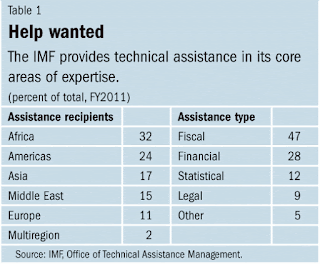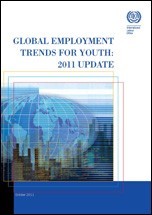I am annoyed with the leftist Economic Policy Institute's spin on the results for the OECD's standardized tests known as PISA. The EPI is complaining that the results portray an unfair picture of American academic performance, and that US policymakers paint an unnecessarily dire picture of US education. Another year, another batch of crappy (should I spell that "KrapPi" to make it more intelligible to certain North American audiences?) results. Ho-hum. Among other EPI complaints we have the following:
IMHO both parties get it wrong. American policymakers should target raising incomes if they really are concerned about raising test scores. There are endogeneity biases possible here, but the wealth of nations is seldom discussed in education reform for obvious reasons despite good reasons to believe they are linked. It's not politically correct, is it? Meanwhile, the leftists do not manage to brush off this issue with Alfred E. Neuman ease but actually exacerbate it by tying it to American's economic fortunes in engaging with well-worn class warfare discourse. US incomes are going down the toilet (or floating around a porcelain bathroom fixture), and so are US test scores.
Bottom line: Results from Shanghai, Singapore, Hong Kong, Taiwan, Korea and Macau are definitely not representative since they are neither OECD members nor are they sampled nationwide but only in major cities. That said, their economies are not stagnant-to-declining, so there's really no surprise they're faring better. Do we really need more evidence of the shifting balance of knowledge?
There is no conspiracy here to keep Americans poor and stupid. As you get poorer, you get stupider; well no @#$%, Sherlock. Ask this guy...
- There is a test score gap between socioeconomically advantaged and disadvantaged students in every country. Although the size of the gap varies somewhat from country to country, countries’ gaps are more similar to each other than they are different.
- Countries’ average scores are affected by the relative numbers of advantaged and disadvantaged students in their schools. The United States has relatively more disadvantaged students than the usual comparison countries. If average scores were adjusted so that each country had a similar social class composition, U.S. scores would appear to be higher than conventionally reported and the gap with top-scoring countries, while still present, would be smaller. Adjusting for differences in countries’ social class composition can also change their relative rankings.
- Some countries to which the United States is frequently unfavorably compared currently have higher test scores, but their test scores have been falling over time, while scores in the United States have not been similarly falling. It is not apparent to what extent U.S. policymakers should attempt to learn from the experience of countries with high scores, or from the experience of countries with rising scores.
IMHO both parties get it wrong. American policymakers should target raising incomes if they really are concerned about raising test scores. There are endogeneity biases possible here, but the wealth of nations is seldom discussed in education reform for obvious reasons despite good reasons to believe they are linked. It's not politically correct, is it? Meanwhile, the leftists do not manage to brush off this issue with Alfred E. Neuman ease but actually exacerbate it by tying it to American's economic fortunes in engaging with well-worn class warfare discourse. US incomes are going down the toilet (or floating around a porcelain bathroom fixture), and so are US test scores.
Bottom line: Results from Shanghai, Singapore, Hong Kong, Taiwan, Korea and Macau are definitely not representative since they are neither OECD members nor are they sampled nationwide but only in major cities. That said, their economies are not stagnant-to-declining, so there's really no surprise they're faring better. Do we really need more evidence of the shifting balance of knowledge?
There is no conspiracy here to keep Americans poor and stupid. As you get poorer, you get stupider; well no @#$%, Sherlock. Ask this guy...

























